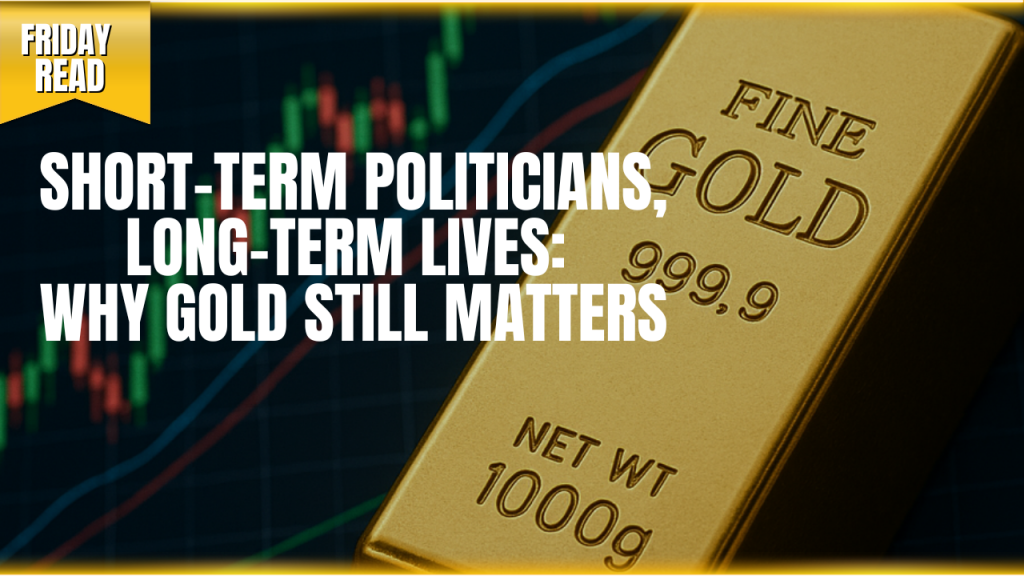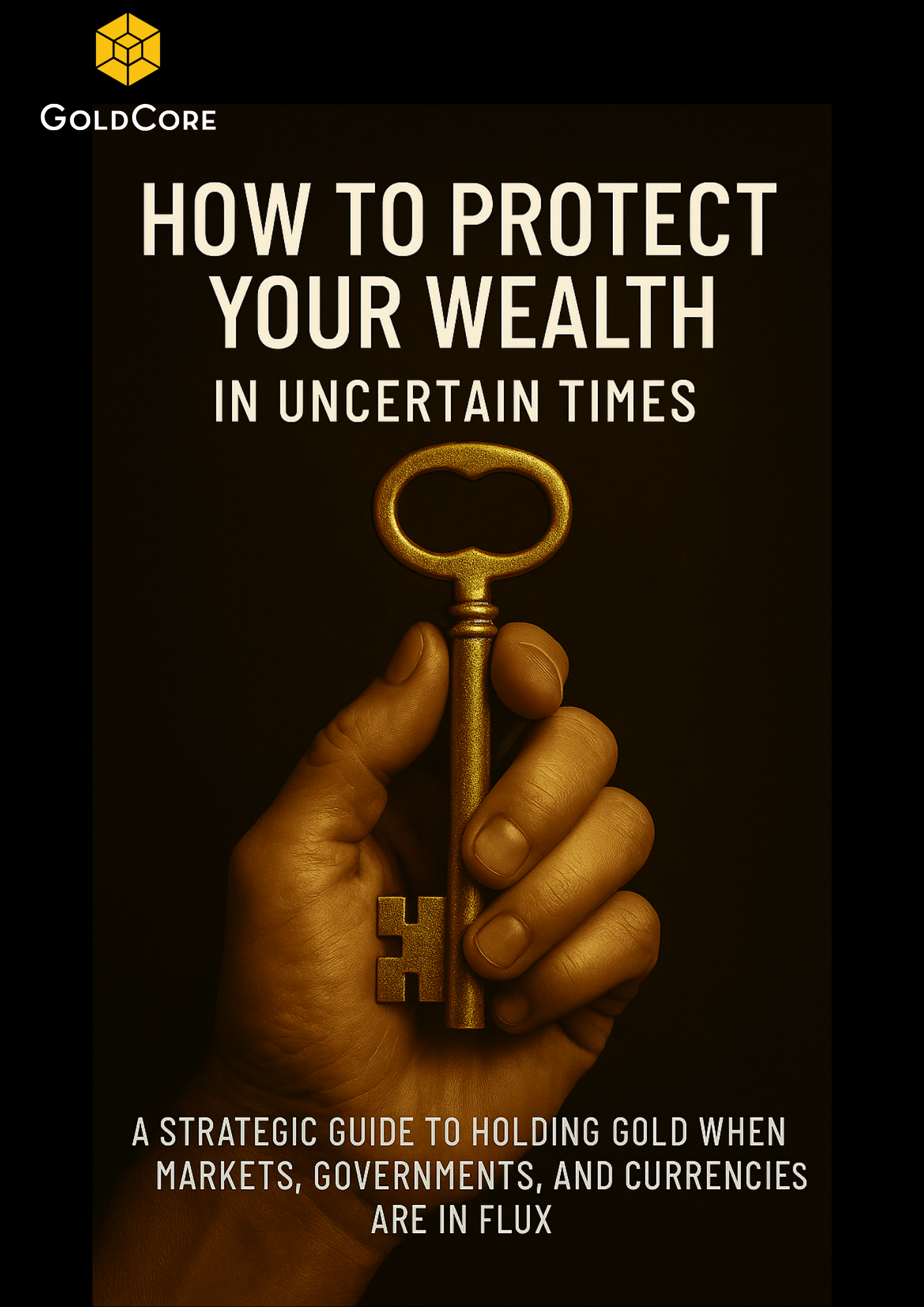
In 44 BC, a Roman statesman named Cicero stood before the Senate and lamented a growing malaise in public life. “The budget should be balanced,” he argued. “The treasury should be refilled, public debt should be reduced… and the assistance to foreign lands curtailed lest Rome become bankrupt.” You can almost hear him in committee hearings today.
Cicero wasn’t warning about Caesar’s ambitions alone. He was voicing a timeless truth: great societies decay when short-term gains override long-term prudence. That warning echoes loudly this summer, across Western democracies where leaders chase quarterly applause while ignoring structural cracks forming beneath our economies.
Today, nowhere is this tension more visible than in the United States, where the second Trump administration has been busy erecting tariff walls, launching spending splurges, and reshuffling institutions at a breathless pace. The economic numbers are (for now) deceptively alluring: unemployment hovers below 5%, inflation sits at a tolerable 2.7%, and the S&P 500 clings to artificial highs.
But these glints of strength mask the deeper erosion of something more important: foresight.
The Illusion of Immediate Vindication
President Trump’s economic policy has always been a performance first, plan second affair. His “Big, Beautiful” tax bill passed. Tariffs on everything from Japanese car parts to Chinese electronics have flooded Treasury coffers. The White House even flirted with launching a “Strategic Bitcoin Reserve.”
Yet none of this alters the fundamental economic arc: US GDP shrank in Q1. Consumer sentiment is deteriorating. Housing starts are at five-year lows. Job creation has slowed outside healthcare and education. A labour market crack-up is brewing beneath the glossy headlines.
Download The Exit Plan
More worrying is the habit forming around markets’ reactions. Policy is increasingly shaped not by long-term impact but by whether bond yields twitch or the Dow dips. April’s “Liberation Day” tariffs were dramatically softened just days after a market tantrum. And with each walk-back, the illusion of strategic competence is reinforced.
But as the CEPR’s Economic Consequences of the Second Trump Administration warns, such volatility is corrosive. Fiscal deficits are ballooning. Tariffs are, in effect, stealth tax hikes, apparently the largest in a generation, which are disguised as patriotism. And the long-run consequences? Deferred, denied, and dismissed.
The Politics of Presentism
What ties this all together is a growing pathology in the West: presentism. The political class no longer pretends to plan for decades. Every decision is a performance for the next news cycle or polling window. And when damage does show up whether in rising debt costs, migration crises, or demographic declines, it’s simply repackaged as someone else’s fault.
$40,000 Gold: The Final Reset Has Already Begun
But the investor, like the citizen, lives a long life. And long lives demand long memories. You are not measured by the quarter, nor by the election. You are measured by the outcomes of decades: how you weather volatility, preserve value, and protect purchasing power.
And this is where gold, inert, ancient, and apolitical, re-enters the frame.
Gold: The Antidote to Institutional Amnesia
Gold neither proclaims nor persuades. It does not oscillate with opinion polls, nor does it engage in the performative cycles of political or economic fashion. It merely endures, it is a dispassionate custodian of value in an era increasingly unmoored from enduring standards of worth.
As the dollar depreciates (and we can debate if this is by design or accident) and as central banks from Beijing to Berlin scramble for monetary alternatives, gold has quietly reasserted itself. Not as a hedge, but as a benchmark. Not as a speculation, but as an insurance policy against political myopia.
Consider what’s happened just this year: European defence budgets are swelling, forced by American withdrawal and Russian aggression. The US sovereign credit rating was downgraded in May. The Fed remains under attack from both sides of the aisle. Executive orders are flying faster than in Roosevelt’s New Deal era. And yet markets… still believe.
They believe because they must. Because the alternative, which is that the stewards of the financial system are improvising on the edge of a fiscal volcano, is too destabilising to price in.
But you, as a long-term thinker, do not have to play that game.
A Long Life Deserves Long-Term Thinking
We should not let markets (or politicians) convince us that short-term wins outweigh long-term risks. The goal in life, after all, is not to peak at 45 and collapse by 60. It is to age well. To remain independent. To be free of avoidable fragility.
The same is true of wealth.
Whether you’re navigating tax uncertainty, preserving retirement capital, or diversifying against geopolitical miscalculation, gold offers something that few assets can: continuity. In an age of strategic drift and political theatre, owning physical gold is not reactionary. It is responsible.
So as the headlines churn and politicians pivot yet again, remember Cicero’s warning and its modern echo: there are no shortcuts to permanence.
Own what endures.
Buy Gold Coins

Buy gold coins and bars and store them in the safest vaults in Switzerland, London or Singapore with GoldCore.
Learn why Switzerland remains a safe-haven jurisdiction for owning precious metals. Access Our Most Popular Guide, the Essential Guide to Storing Gold in Switzerland here.
Receive Our Award Winning Market Updates In Your Inbox – Sign Up Here






